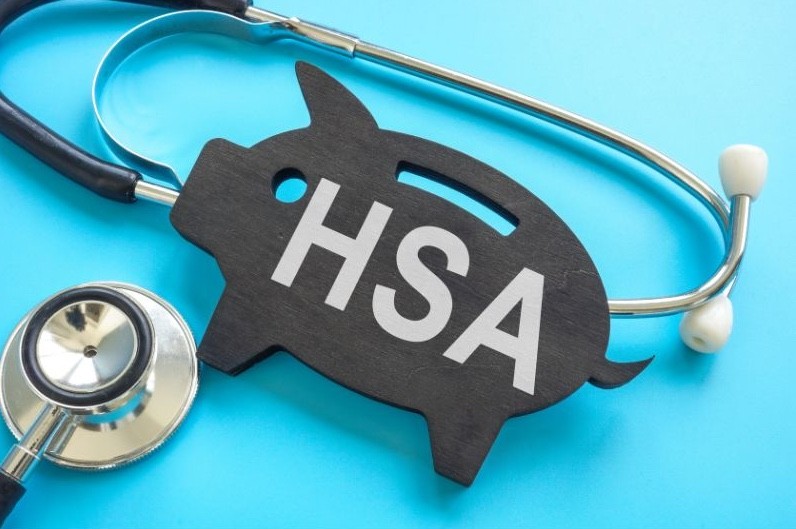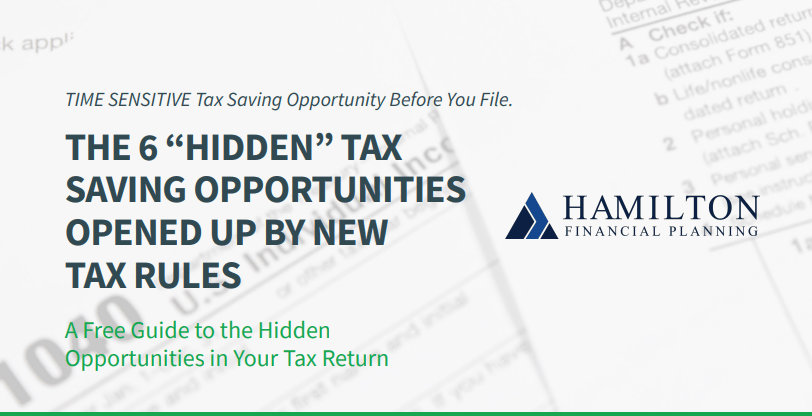
By Scott Hamilton, CFP®
The rising cost of healthcare has been a major worry for many Americans for years. In fact, half of all Americans surveyed aren’t confident they’ll be able to cover necessary medical expenses as they age. Even with good health insurance, an unexpected medical emergency could drain your emergency fund.
Luckily, a health savings account (HSA) can help you manage these costs. At Hamilton Financial Planning, LLC, we’re here to help you understand the pros and cons of opening an HSA so you can decide if it’s the right choice for you.
Table of Contents
HSA Benefits
There are many advantages of an HSA that can help you save on healthcare costs while enjoying tax benefits:
Lower Your Federal Income Taxes: One of the biggest benefits of an HSA is the ability to make tax-free deposits, which lowers your taxable income. Since tax hasn’t been taken out, you have more to contribute to your account.
Payroll Deductions: Many people choose to have their HSA contributions withheld directly from their paycheck. This way, they never see the money or have to pay taxes on it. If you prefer, you can also make contributions yourself and take a deduction when filing your taxes for the same benefit.
FICA Tax Savings: Contributing to your HSA through payroll deductions under a Section 125 cafeteria plan offers an additional tax advantage, as these contributions are exempt from FICA taxes, saving you even more.
Tax-Free Earnings: Depending on the account, some HSAs allow you to invest your contributions in mutual funds, ETFs, or stocks. Any earnings from these investments are also tax-free, as long as they are used to pay for medical expenses.
A Retirement Planning Strategy
While many people use their HSA funds to pay for current out-of-pocket medical expenses, you can also maximize your contributions, letting them grow for use in retirement when you’ll likely need them most. HSAs are a great complement to your other retirement savings accounts, allowing your IRAs and 401(k)s to cover regular living expenses. In this way, your HSA acts as a contingency fund earmarked just for health costs. Why wouldn’t you just stick with traditional retirement accounts? Because an HSA receives better tax treatment than any IRA or 401(k) and can be a powerful way to help maximize your nest egg.
What Do I Need to Get Started With an HSA?
To qualify for an HSA, you must meet the following requirements:
- Be covered under a high-deductible health plan
- Have no other healthcare coverage
- Not be enrolled in Medicare
- Not be claimed as a dependent on someone else’s tax return
As of 2024, an individual who has an HSA can contribute up to $4,150 per year, and $8,300 for family coverage (up from $3,850 and $7,750 in 2023, respectively). Individuals who are over the age of 55 can make additional catch-up contributions in the amount of $1,000 per year to their HSAs.
HSA Withdrawals
You can use the money you deposit in your HSA to pay for medical expenses before you meet your deductible on your HDHP. Such medical expenses include the usual healthcare costs, such as deductibles, copayments, and vision and dental expenses. But you can also use it to pay for non-traditional medical costs, such as acupuncture or chiropractic visits. Additionally, you can use the account to cover medical costs for your immediate family members or spouse even if they are not under your HDHP.
One of the most beneficial attributes of HSAs is that the funds roll over from year to year, which means that these tax-free funds can grow with interest for many years. Once you reach the age of 65, you can withdraw the funds without a penalty and use them on non-medical expenses; however, you will pay income tax on the funds if you use them in this way. If you are enrolled in Medicare, you can use HSA funds to pay for Medicare premiums.
Potential Disadvantages of HSAs
There are many advantages that HSAs offer, but they do not make sense for every family and every situation.
It goes without saying that illness can be unpredictable and, therefore, it can be hard to budget for healthcare expenses. Also, it is worth noting that you cannot use HSAs to cover Medigap premiums without paying taxes.
We’re Here to Help
When setting up a health savings account and figuring out how to use it, it’s crucial to get help from an experienced financial advisor who can guide you through the details. If you’re looking to learn more about HSAs and how to make the best decisions for your money and health, our team at Hamilton Financial Planning, LLC is here to assist you! Schedule a complimentary get-acquainted meeting online or reach out to us at 512-261-0808 or scott@hamiltonfinancialplanning.com.
About Scott
Scott Hamilton is founder and chief financial officer at Hamilton Financial Planning, a wealth management firm that specializes in providing comprehensive financial planning for retirees. With over 20 years of experience in the financial industry, and having completed over 250 financial plans for retirees across all industries, but mostly the oil and gas industry, Scott is passionate about providing his clients with the tools and insight they need to achieve their financial goals. He has a Bachelor of Business Administration in finance from Texas State University and an MBA in international finance from Pepperdine University. Scott has also been happily married to his wife, Gayle, for over 25 years. To learn more about Scott, connect with him on LinkedIn.

